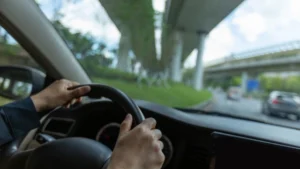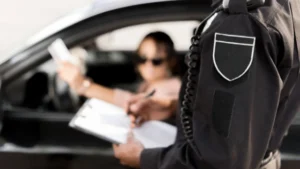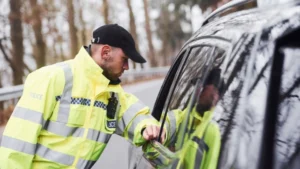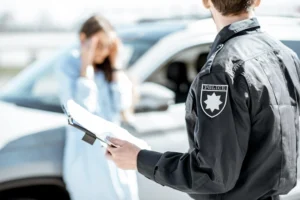

The Reality of Vehicular Manslaughter Charges
Imagine driving home late at night. You glance down at your phone for a split second, and in that moment, an accident occurs. Before you know it, you are facing vehicular manslaughter charges. One mistake, one moment of distraction, can change everything.
A vehicular manslaughter charge is one of the most serious traffic-related offenses, carrying severe legal and personal consequences. If you or a loved one is facing such charges, understanding the law, possible defenses, and sentencing factors is critical to protecting your future.
Fatal Accidents: When Negligence Becomes a Crime
A fatal accident that results in someone’s death does not automatically lead to a criminal charge. However, when prosecutors believe a driver acted negligently or recklessly, they may file vehicular manslaughter charges.
What Qualifies as Vehicular Manslaughter?
The legal definition of vehicular manslaughter varies by state, but it typically involves causing a fatal accident due to reckless or negligent driving. Common causes include:
- Driving under the influence (DUI/DWI): If a driver is intoxicated at the time of the crash, the charge may escalate to vehicular homicide.
- Distracted driving: Texting, eating, or any distraction that leads to a fatal crash.
- Excessive speeding: Driving at dangerous speeds in a way that endangers others.
- Running red lights or stop signs: Violating traffic laws in a way that leads to a deadly collision.
- Falling asleep at the wheel: In some cases, drowsy driving can be considered negligence.
Not every fatal accident leads to a criminal conviction, but prosecutors must prove the driver acted negligently or recklessly.
Vehicular Manslaughter vs. Vehicular Homicide
Many states distinguish between vehicular manslaughter and vehicular homicide. While both involve a fatal accident, vehicular homicide often carries harsher penalties because it suggests a greater level of intent or recklessness.
- Vehicular Manslaughter: Typically applies when a driver causes a fatality due to negligence or minor recklessness.
- Vehicular Homicide: Often charged when the driver is under the influence or acts with extreme disregard for human life.
In some states, aggravated vehicular homicide applies when a driver has prior DUI convictions or was engaging in particularly reckless behavior.
Sentencing Factors in Vehicular Manslaughter Cases
If convicted, vehicular manslaughter penalties can vary based on several factors:
Key Factors That Influence Sentencing
- Level of Negligence: Was the accident caused by minor negligence, recklessness, or extreme disregard for human life?
- Driving Under the Influence: A DUI-related fatality often results in mandatory prison time.
- Criminal History: Prior offenses, particularly related to reckless driving, can increase penalties.
- State Laws: Some states treat vehicular manslaughter as a misdemeanor, while others classify it as a felony.
- Hit-and-Run: Leaving the scene of an accident involving a fatality leads to harsher charges.
- Multiple Fatalities: If more than one person dies in the crash, the penalties are significantly more severe.
Common Penalties for Vehicular Manslaughter
- Misdemeanor Convictions: It can lead to fines, probation, a suspended license, and a jail sentence of up to one year.
- Felony Convictions: Can lead to years in prison, heavy fines, and permanent loss of driving privileges.
- DUI-Related Cases: Mandatory prison time in most states, with sentences ranging from five years to life in prison.
Defense Strategies for Vehicular Manslaughter
Even if you were involved in a fatal accident, there are several ways to challenge vehicular manslaughter charges.
1. Challenging the Evidence
A strong defense can question the accuracy of police reports, accident reconstruction, and witness statements. If there is doubt about how the crash occurred, the case against you weakens.
2. Lack of Negligence or Recklessness
Prosecutors must prove that your actions directly caused the fatality. If the accident was truly unavoidable or caused by another factor—such as poor road conditions, mechanical failure, or another driver’s actions—your lawyer can argue that negligence was not a factor.
3. Medical Emergency Defense
If you suffered a medical emergency, such as a seizure or heart attack, you may not be held legally responsible for the crash. Providing medical records can help prove this.
4. Challenging DUI Charges
If alcohol or drugs were involved, your attorney may challenge:
- The accuracy of breathalyzer or blood tests.
- The legality of the traffic stop.
- Whether your BAC was rising at the time of testing (meaning you were under the limit while driving but over the limit later).
5. Proving Mitigating Circumstances
Even if you were at fault, showing remorse, clean driving history, and lack of criminal intent can help reduce sentencing. Many first-time offenders receive alternative sentencing, such as probation, community service, or house arrest.
Case Study: A Vehicular Manslaughter Defense That Worked
Background
Lisa, a 32-year-old nurse, was driving home after a 12-hour shift when she momentarily nodded off at the wheel. She veered into another lane, causing a fatal accident. She was charged with vehicular manslaughter due to alleged negligence.
Defense Strategy
Lisa’s attorney built a strong defense by:
- Providing Medical Evidence: Her exhaustion was caused by a diagnosed sleep disorder.
- Using Expert Witnesses: An accident reconstruction expert proved the crash was unavoidable.
- Negotiating a Plea Deal: Instead of jail, Lisa agreed to probation and defensive driving courses.
Outcome
Lisa’s charge was reduced to a misdemeanor, avoiding a felony conviction.
Conclusion
Vehicular manslaughter is a serious charge, but defenses exist. Seeking an experienced criminal defense attorney can make a significant difference in the outcome of your case.
Frequently Asked Questions (FAQs)
- Can vehicular manslaughter charges be dropped? Yes. If evidence proves the accident was unavoidable or due to another driver’s fault, charges can be reduced or dismissed.
- How long do you go to jail for vehicular manslaughter? It depends on the state and circumstances. Some cases result in probation, while others carry 5-20 years in prison.
- Does insurance cover vehicular manslaughter? Insurance may cover damages, but a conviction can result in policy cancellation or extreme rate increases.
- Can I still drive after a vehicular manslaughter conviction? Some states revoke or suspend a driver’s license for years after a conviction.
- Should I hire a lawyer for vehicular manslaughter charges? Yes. A criminal defense attorney can challenge the evidence, negotiate lesser charges, or even get the case dismissed.



